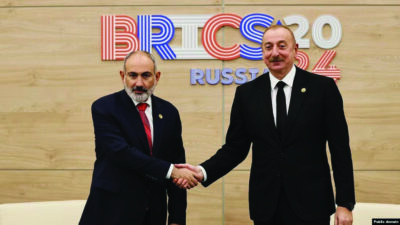The degradation of Armenia’s national security structure (as well as the crisis of political confidence) is often attributed to the defeat in the 2020 Artsakh War; while the defeat contributed to both, it did not cause either. It exposed a problem which has much deeper roots. Almost all systemic and structural political and military weaknesses of the Republic of Armenia share a fundamental root cause, which is the chronic absence of a culture and tradition of Statehood, both in the mindset of the political leadership and in the general public. This, in turn, is rooted in the absence of a cohesive political culture in the country, where a generally apolitical public, focused primarily on individual political leaders and their record, and fixated mainly on how that record affects their personal lives, has little or no appreciation of a broader, national, issue-driven political process and purpose.
The absolutism of State interests, which is a key guiding principle for most successful sovereign states, has been absent from the political thought process of successive governments of Armenia since independence. In many countries, during the formative years of their Statehood when they lack the requisite institutional depth, it has fallen upon visionary leaders to define, articulate, and defend State interests. This top-down process never took place in Armenia.
The political leadership viewed its function more as a privileged pastime than the hard, tireless, unglamorous, and thankless work of building a State from scratch, with all the requisite institutional building blocks, security measures, diversified strategic alliances, and the necessary steps to establish defensible sovereignty. It also invariably mistook the interests of its “rule” or its power base with those of the State.
While all governments pursue their own interests, many also recognize the distinction between the interests of the State and their more parochial ones. Realpolitik is shaped by the relentless pursuit of State interests. Even some of the most corrupt governments have managed to protect their sovereignty by recognizing a critical red line of State security which they do not allow their corrupt practices to cross. When Statehood is endangered, parochial and personal interests are temporarily put on the back burner, while the danger is brought under control. In this single-minded pursuit of State interests, governments do not hesitate to circumvent or violate principles, values, ideology, even certain legal restrictions in order to protect the supreme interests of the State. That’s why some of the most unlikely strategic alliances between countries which are ideologically diametrically opposed and have no shared values are established and sustained, as long as those alliances serve the interests of their respective states.
In March 2021, I published an article in which the causes, consequences and possible remedies of the absence of the culture of Statehood were discussed.









